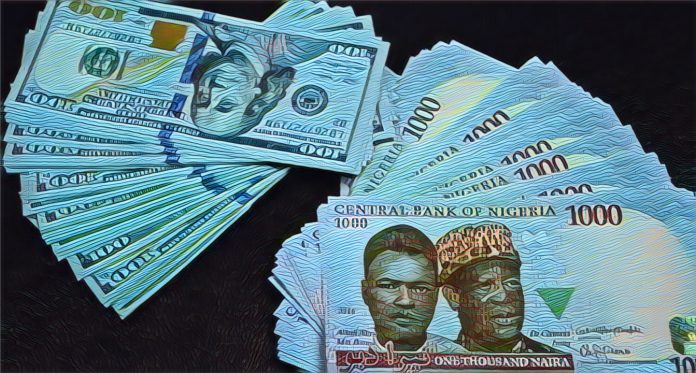Nigeria’s currency, the naira, has fallen to a record low of 1,534.39 per dollar at the official foreign exchange market, amid rising demand and scarce supply of the greenback. The naira lost 4.19 percent of its value on Monday, compared with 1,469.97 per dollar on Friday, according to data from the FMDQ Securities Exchange.
The naira also depreciated by 1.33 percent at the parallel market, known as the black market, where the dollar traded at 1,505 naira on Monday, up from 1,485 naira on Friday. The widening gap between the official and parallel market rates has fueled speculation and arbitrage in the foreign exchange market, putting more pressure on the naira.
The Central Bank of Nigeria (CBN) has been struggling to defend the naira amid dwindling foreign reserves, which have declined to $31.11 billion as of February 8, 2024, from $33 billion in December 2023. The CBN has also tightened its foreign exchange policies, restricting access to dollars for certain imports and imposing new rules on international money transfer operators (IMTOs).
According to a circular issued on January 31, 2024, the CBN has mandated that all inbound money transfers to Nigeria facilitated by IMTOs must be paid in naira only, either through a bank account or in cash. The exchange rate for such transfers will be determined by the prevailing rates in the Nigerian foreign exchange market. The CBN has also prohibited IMTOs from facilitating outbound transfers, limiting their operations to inbound transactions only.
The CBN said the new measures were aimed at enhancing transparency and accountability in the foreign exchange market, as well as addressing concerns related to money laundering, illicit financial flows, and currency stability. However, some analysts have criticized the CBN’s policies, arguing that they are counterproductive and could worsen the foreign exchange crisis.
“The CBN is trying to control the demand and supply of dollars, but it is not addressing the root causes of the problem, which are low oil prices, weak fiscal revenues, and poor economic diversification,” said Bismarck Rewane, an economist and CEO of Financial Derivatives Company. “The CBN should allow the market to determine the exchange rate and focus on boosting the supply of dollars through foreign direct investment, diaspora remittances, and external borrowing.”
Nigeria, Africa’s largest economy and oil producer, relies heavily on oil exports for its foreign exchange earnings, which account for about 90 percent of its total export revenue. However, the global oil market has been volatile in recent years, due to the COVID-19 pandemic, geopolitical tensions, and environmental concerns. The International Monetary Fund (IMF) projects that Nigeria’s oil exports will decline by 12 percent in 2024, from $38.6 billion in 2023 to $34 billion in 2024.
The IMF also forecasts that Nigeria’s foreign reserves will drop to $24 billion by 2024, from $33 billion in 2023, indicating potential challenges for the country’s external balance and debt sustainability. The IMF has urged Nigeria to implement comprehensive reforms to boost its non-oil revenue, reduce its fiscal deficit, and improve its business environment.
Nigeria exited the COVID-19 recession in the fourth quarter of 2023, recording a 0.11 percent growth in its gross domestic product (GDP). However, the growth rate remains sluggish and insufficient to keep up with the population growth of 2.6 percent. The IMF projects that Nigeria’s GDP will grow by 2.9 percent in 2024 and 3 percent in 2025, below the regional average of 4.1 percent and 4.5 percent, respectively.
The weak economic performance has also fueled inflation, which rose to 18.55 percent in December 2023, the highest level since April 2017. The rising inflation has eroded the purchasing power of Nigerians, many of whom are living in poverty and facing food insecurity. According to the National Bureau of Statistics, the poverty rate in Nigeria was 37 percent in 2022, while the food inflation rate was 22.35 percent in December 2023.
The CBN has maintained its benchmark interest rate at 11.5 percent since September 2020, balancing its objectives of supporting growth and curbing inflation. The CBN has also implemented various interventions to provide liquidity and credit to the real sector, especially the agriculture, manufacturing, and health sectors. The CBN said it disbursed over 2 trillion naira to various sectors of the economy in 2023, under its various intervention schemes.
Source: BusinessDay



